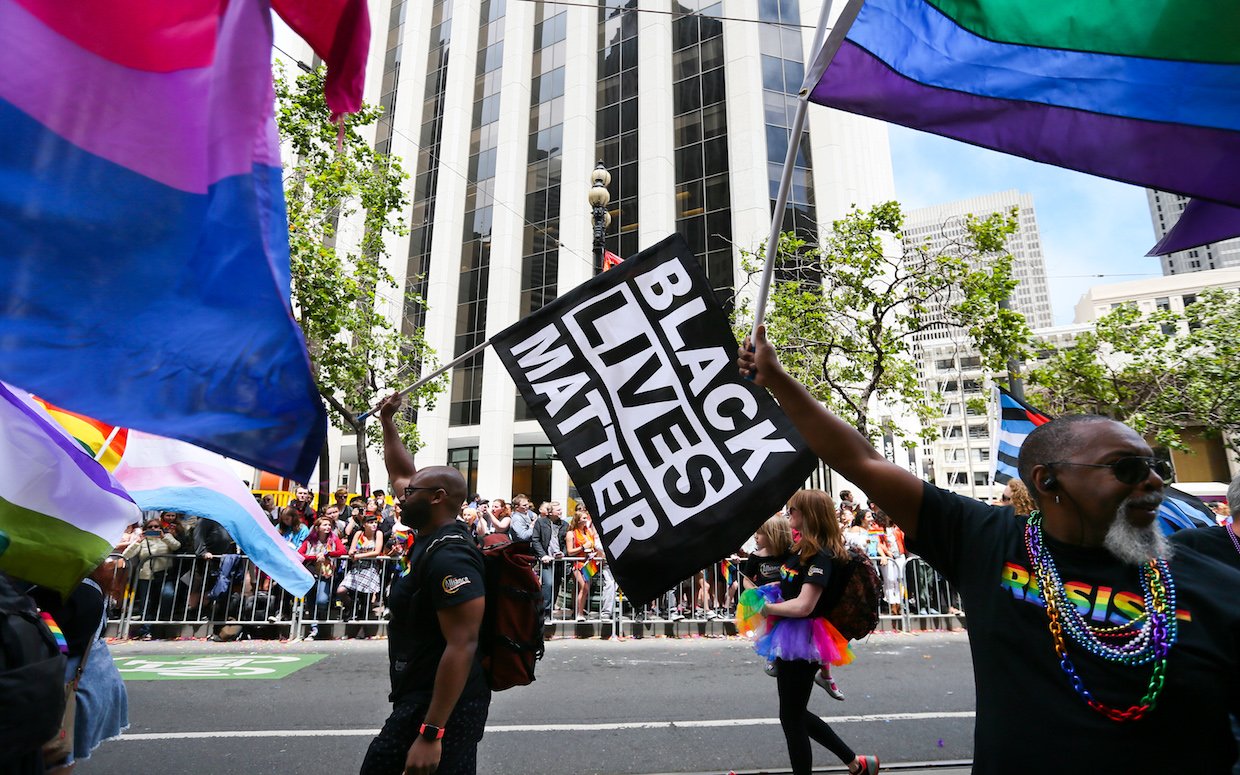OPINION: Black Lives Matter protests honor LGBTQ+ history

Sunday was the 51st anniversary of the Stonewall Uprising, one of the most significant events in American LGBTQ+ history that set the foundation for Pride month.
LGBTQ+ Pride has been officially celebrated in America during the month of June since the Clinton administration in 1999, but the history of the festivities goes back 30 years prior.
Pride month first started as a remembrance of those who fought against police brutality in the New York City LGBTQ+ community.
In Greenwich Village, New York, on June 28, 1969, a Black transgender woman named Marsha P. Johnson, also known as the “Queen Mother,” threw a shot glass at a Stonewall Inn mirror in response to eight police officers committing brutal acts toward those within the bar. A 2010 Forbes article deemed this action as the catalyst for the historic protest.
It was not uncommon during that time for police officers to barge into gay bars to torment clubbers. This was within their complete jurisdiction, since homosexual acts were considered illegal and described under laws against “vice and gambling.”
The Public Morals Division, a branch of the New York Police Department that focused on “restoring the quality of life in the city,” established in 1801 that simply being gay or transgender was an act of immorality. A 2019 BBC article recalled the presence of the PMD at the Greenwich Village protests.
Johnson’s calls to defend her and her friends’ civil rights began what is now known as the Stonewall Uprising. Participants rallied in the city streets for six days, throwing bricks through windows and setting cars on fire.
These acts may sound familiar, because a similar tension is developing today. The reactions of Black Lives Matter protesters are a poignant testament to the progressive effects that the Stonewall Riots have had on our society.
The Stonewall Uprising was the first organized rebellion against the NYPD within the gay community. The History Channel credits the event as the beginning of the American gay rights movement. The protest inspired people of many different oppressed communities to speak out against police departments and the U.S. government’s repeated abuses of power.
As this year’s Pride month comes to end, some have claimed that it has been overshadowed by the current Black Lives Matter protests.
A tweet by Kaitlin Bennett, or the “Kent State Gun Girl,” has inspired internet users to establish interesting comparisons between both movements.
Bennett tweeted on June 5 about these movements in an attempt to belittle both.
“The one good thing about these protests is that they’ve effectively canceled Pride month,” Bennett said.
Today, Black Lives Matter protesters are fighting against the same oppressive behavior the Stonewall Inn protesters were confronting. Police all over the country have long histories of abusive power, which end up further marginalizing communities that have little to no authority within American society.
Johnson’s heroism was not only a fight for the LGBTQ+ community, but also a fight for the Black community. She recognized that her identity as a transgender Black woman put her in a dangerous position to be brutalized by police, who are hired to protect her as an American citizen, and so she sought to make a change.
This year’s anniversary of the Stonewall Uprising is not being overshadowed by the Black Lives Matter protests. Instead, the lives that were put at risk to obtain human rights in Greenwich Village are being honored.
Their courage to act against the system that oppressed them inspired the formation of the Civil Rights Act of 1991. Despite reforms currently taking place under the Trump administration, the Civil Rights Act still provides gay and transgender Americans the ability to work, shop, eat and live their lives without fear of discrimination.
To celebrate Pride month is to celebrate freedom and equality. The Black Lives Matter movement is only an extension of what was started 51 years ago today.






